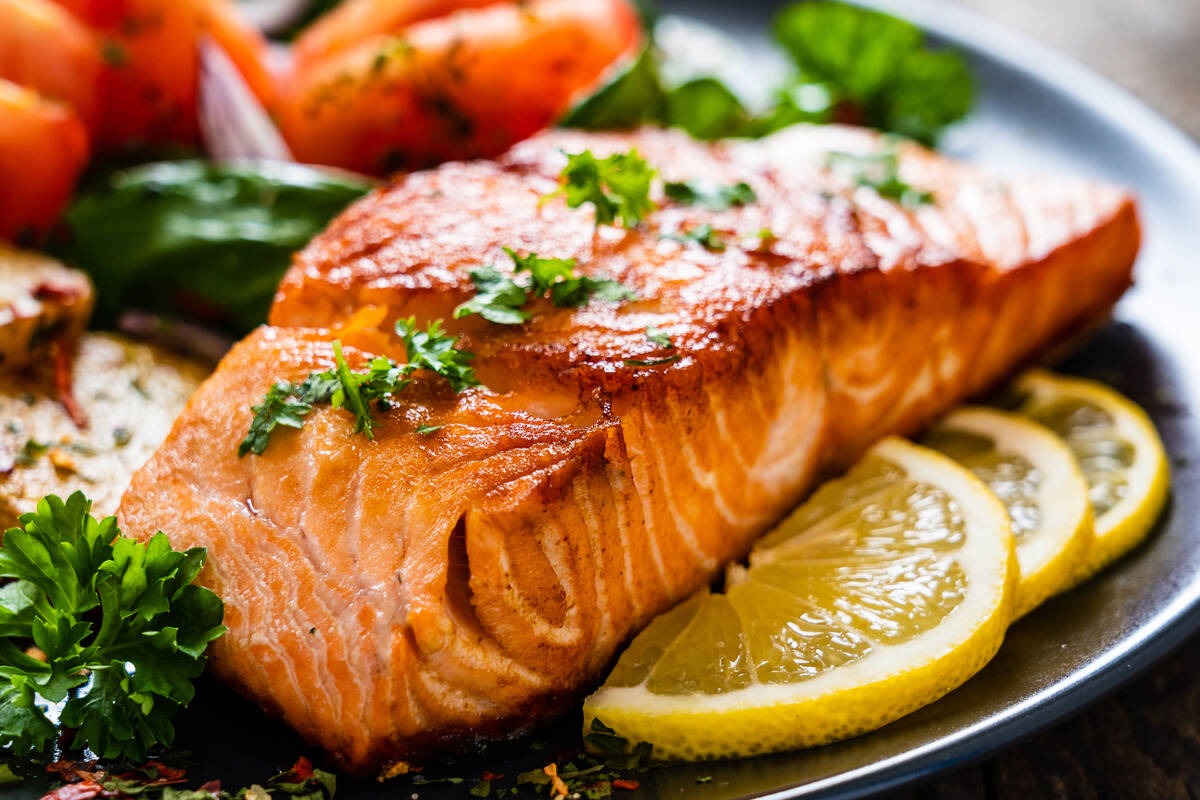10 high-protein foods to promote better overall health

Protein constitutes roughly 20 percent of the human body, making it and water the two most important parts of a healthy diet. Protein is an essential macronutrient that helps build and repair tissue, supports immune function and maintains overall health.
To avoid deficiency, an average adult must consume about 50 to 75 grams of protein daily, or 10 percent to 13 percent of their caloric intake. Incorporating high-protein foods into a diet is a smart and delicious way to increase intake.
Here are 10 high-protein foods that are versatile enough to fit any nutritional requirements and offer various other health benefits:
■ Chicken breast: Chicken breast is among the most popular lean proteins and an excellent choice for anyone looking to build muscle or manage weight. A 100-gram serving of low-fat grilled chicken breast provides approximately 31 grams of protein, about half the recommended daily intake. The versatility of chicken breast boosts its popularity, as numerous dishes incorporate the protein, from salads to stir-fries.
■ Greek yogurt: This nutritional powerhouse is packed with protein and gut health-supporting probiotics. A 170-gram serving of plain, nonfat Greek yogurt provides around 15 to 20 grams of protein. Enjoy it as a snack, mixed with fruit, honey or granola, or use it as a smoothie base. Creative cooks can substitute Greek yogurt for sour cream or heavy whipping cream for a creamy texture. This swap offers a lighter way to add protein without relying on meat.
■ Eggs: A versatile source of high-quality protein, eggs are an excellent low-calorie option, as the egg whites hold most protein. One large egg contains about 6 grams of protein. Eggs are also rich in essential amino acids, vitamins and minerals. So, whether boiled, scrambled or poached, eggs make a convenient and nutritious addition to any meal.
■ Salmon: This delicious fish is flush with good fats, muscle-building protein and essential omega-3 fatty acids. A 100-gram serving of salmon provides approximately 25 grams of protein and an abundance of heart-healthy fats. The omega-3 fatty acids found in salmon contribute to brain health and reduce the risk of chronic diseases. A versatile meal option, salmon is a flavorful choice for those seeking protein-rich, nutrient-dense and heart-healthy food options.
■ Quinoa: Quinoa is a plant-based complete protein, meaning that it contains all of the essential amino acids. That makes it an excellent protein option for vegetarians and vegans. In addition to fiber and essential minerals, a cup of cooked quinoa contains approximately 8 grams of protein. It’s a versatile grain that can serve as a base for salads, side dishes or even substitute for rice.
■ Cottage cheese: Rich in protein and low in carbohydrates, cottage cheese contains 27 grams of protein in a 1 cup serving. Its high protein content makes it ideal for promoting muscle recovery and satiety.
■ Lean beef: In addition to its high protein content, this nutritional powerhouse is rich in iron and zinc. Depending on the cut, a 100-gram serving of cooked lean beef typically provides 26 grams of protein. Opt for lean cuts such as sirloin or tenderloin to reduce saturated fats.
■ Lentils: A cup of cooked lentils contains approximately 18 grams of protein, making it a budget-friendly, plant-based and nutrient-rich protein source. Lentils make great additions to soups, stews, salads and more. Their versatility and substantial protein content make them a staple in vegetarian and vegan diets.
■ Peanuts: Peanuts are not just a tasty snack, but a good source of protein and healthy fats. A 28-gram serving provides 7 grams of protein. Additionally, peanuts contain monounsaturated and polyunsaturated fats, which can contribute to good heart health. Because of their high caloric content, moderation is key.
■ Chickpeas: Also known as garbanzo beans, chickpeas are a versatile legume used in salads, soups, stews or even hummus. One cup of cooked chickpeas contains approximately 15 grams of protein and lots of fiber, aiding digestion and promoting feelings of satiety.